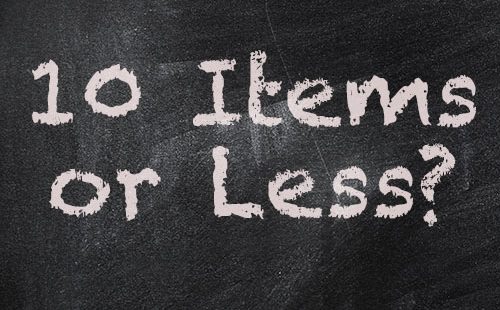Misuse of the terms fewer and less will set off alarms in the heads of many language enthusiasts. According to usage rules, fewer is only to be used when discussing countable things, while less is used for singular mass nouns. For example, you can have fewer ingredients, dollars, people, or puppies, but less salt, money, honesty, or love. If you can count it, go for fewer. If you can’t, opt for less.
However, it’s not that simple. Since the reign of Alfred the Great, a time when Old English was spoken, less has been used in the same way that fewer is currently used. This long history of usage accounts for supermarkets posting the words “10 Items or Less” over the express lanes, when “10 Items or Fewer” is the grammatically correct option.
If we know the intended meaning of the supermarket signs, does using fewer or less really matter? To many who have internalized the fewer or less distinction, the answer is yes. Using less where fewer is expected will sound jarring to their ears, so consider this as you count items or amounts in the future.














